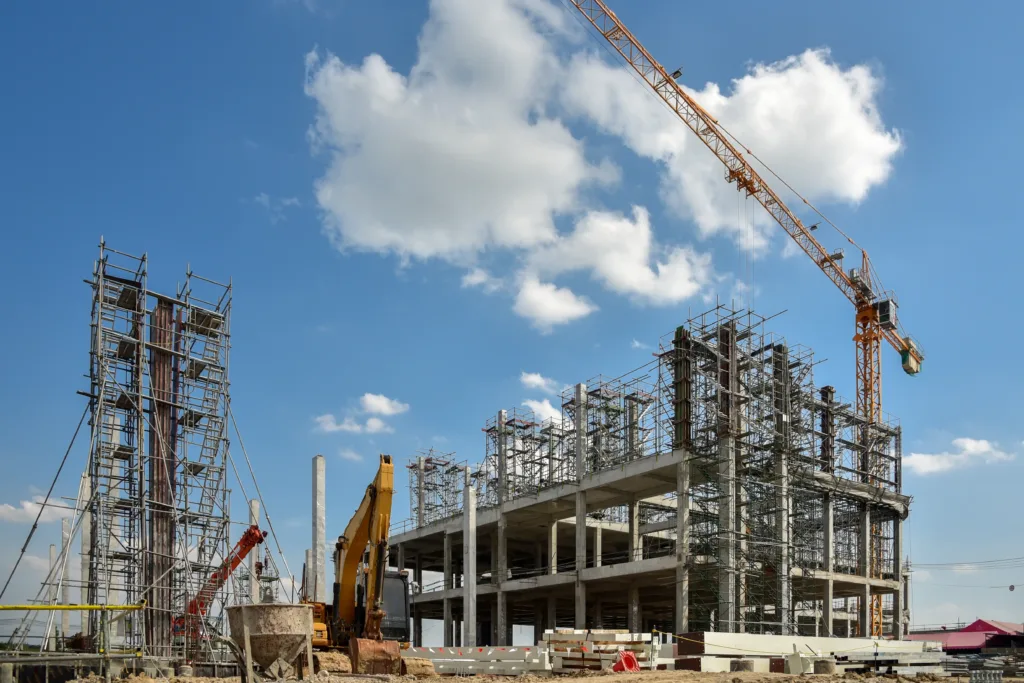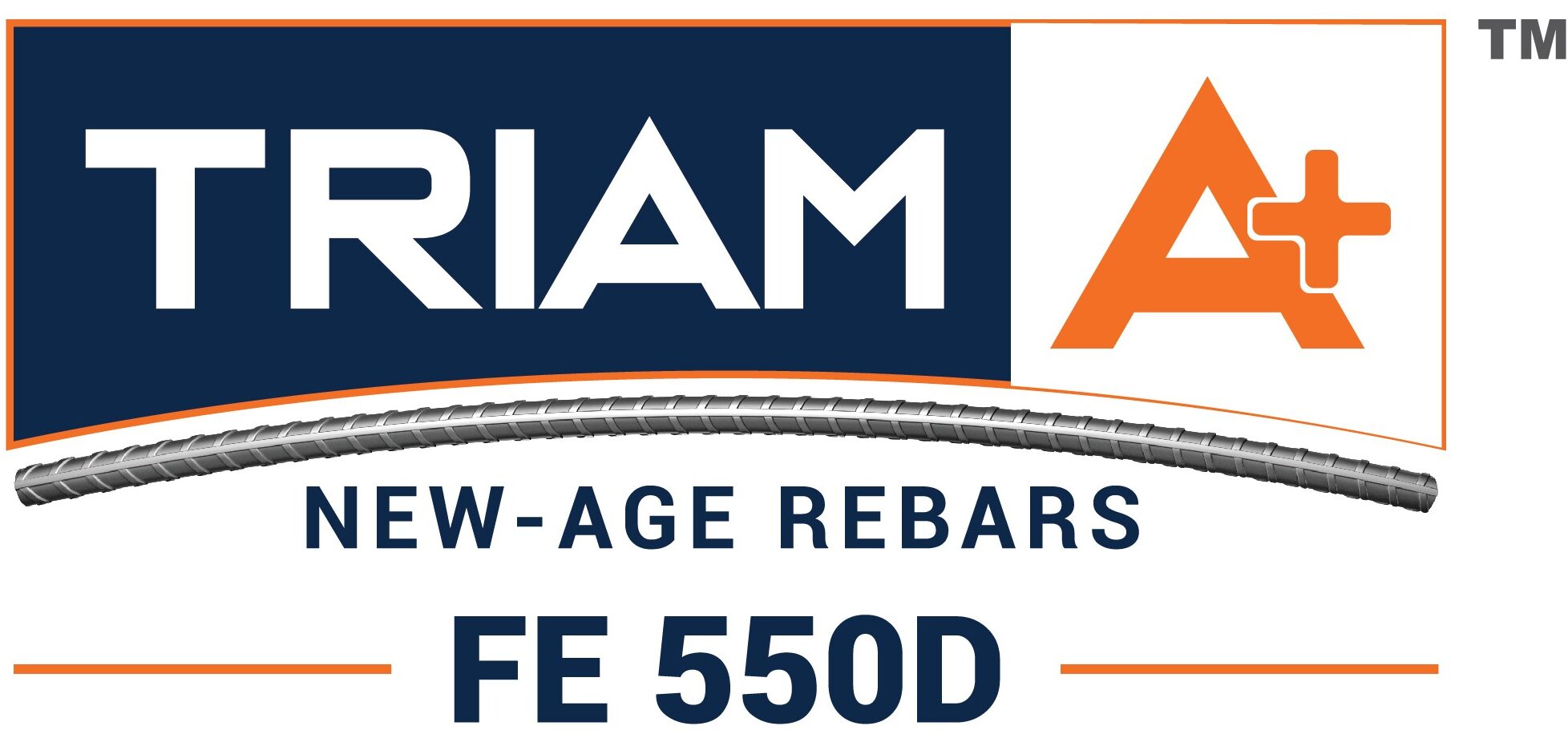
Why TMT Fe550D is Best for House Building In India
TMT Fe550D (Thermo Mechanically Treated Fe550D) is a type of high-strength reinforcement steel used in construction in India. Here are some reasons why TMT Fe550D is considered best for house building in India:
High strength: TMT Fe550D has a minimum yield strength of 550 MPa (megapascals), which makes it one of the strongest types of TMT steel available in the market. This high strength ensures that the structure built with TMT Fe550D can withstand heavy loads and resist structural failures, making it ideal for building houses in India where earthquakes, cyclones, and heavy rainfall can occur.
Ductility: TMT Fe550D also has excellent ductility, which means it can undergo large deformation before it ruptures. This property allows the steel to absorb energy during seismic events, preventing sudden brittle failure and enhancing the overall structural performance of the building.
Corrosion resistance: TMT Fe550D is made using a thermo-mechanical treatment process that involves controlled cooling of the steel after rolling. This process results in a steel with a hard outer surface and a soft inner core, which provides excellent resistance against corrosion, a common problem in India due to the humid and coastal environment.
Weldability: TMT Fe550D is also known for its good weldability, which makes it easier to use in construction projects that require the welding of steel reinforcement bars. This allows for greater flexibility and ease of construction, ensuring faster and more efficient construction processes.

Longevity: TMT Fe550D has a long service life, which means that structures built with this type of steel are expected to last for many years without significant maintenance or repair requirements. This makes it a cost-effective choice for house building in India, where durability and longevity are essential considerations.
Compliance with Standards: TMT Fe550D is manufactured in accordance with various national and international standards, such as IS 1786:2008, which is the Indian standard for high-strength deformed steel bars for concrete reinforcement. This ensures that TMT Fe550D is of consistent quality and meets the necessary requirements for construction in India.
Fire resistance: TMT Fe550D has excellent fire resistance properties, making it suitable for house construction in India where fire safety is a crucial consideration. The unique manufacturing process of TMT Fe550D, which involves controlled cooling, results in a steel with a high degree of fire resistance. It can withstand high temperatures without losing its strength and structural integrity, thus enhancing the fire safety of the building.
Earthquake resistance: India is prone to earthquakes, and using TMT Fe550D in house construction can significantly enhance the seismic resistance of the structure. The high strength and ductility of TMT Fe550D allow it to absorb and dissipate seismic energy, reducing the risk of structural damage or collapse during earthquakes.
Sustainable choice: TMT Fe550D is also considered a sustainable choice for house building in India. The manufacturing process of TMT Fe550D involves using scrap steel, which helps in recycling and reducing the demand for virgin steel production. Additionally, the long service life and durability of TMT Fe550D contribute to reducing the need for frequent replacements, minimizing the environmental impact.
Cost-effective: While TMT Fe550D may have a slightly higher initial cost compared to traditional mild steel bars, its high strength and other superior properties can result in cost savings in the long run. The reduced maintenance, repair, and replacement requirements, as well as the faster construction process due to its weldability and other favorable characteristics, can result in overall cost savings, making it a cost-effective choice for house building in India.
Availability and widespread usage: TMT Fe550D is widely available in India, and it is a commonly used type of reinforcement steel in the construction industry. This means that it is easy to source and procure for house building projects across the country. Its widespread usage also means that there is a wealth of knowledge and expertise available among construction professionals, engineers, and contractors on working with TMT Fe550D, making it a familiar and trusted option for house construction in India.
Quality assurance: TMT Fe550D is manufactured by reputed and established steel manufacturers who follow stringent quality control measures to ensure consistent quality. This includes regular testing and monitoring of the steel during the manufacturing process to ensure that it meets the required standards for strength, ductility, and other properties. This provides a level of quality assurance, giving confidence to builders and homeowners that the TMT Fe550D used in their house construction is reliable and of high quality.
Versatility: TMT Fe550D can be used in various applications in house construction, including as columns, beams, slabs, and foundations. Its high strength and ductility make it suitable for a wide range of structural elements, providing versatility in design and construction options. It can be easily customized and bent to different shapes and sizes as per the design requirements, allowing for flexibility and creativity in building design.
Code compliance: TMT Fe550D complies with various national and international building codes and standards, including the Indian standard IS 1786:2008 for high-strength deformed steel bars for concrete reinforcement. This ensures that structures built with TMT Fe550D are in accordance with the regulatory requirements, providing confidence in the structural integrity and safety of the building.
Reputation and track record: TMT Fe550D has a strong reputation and a proven track record of successful usage in numerous construction projects in India. Many builders, contractors, and engineers have experienced positive results with TMT Fe550D in terms of its performance, durability, and structural integrity. This positive reputation and track record make it a preferred choice for many construction professionals for house building in India.
Durability: TMT Fe550D has excellent durability properties, making it suitable for long-term use in house construction in India. It is resistant to corrosion, rust, and other environmental factors, ensuring that the structure remains robust and durable over time. This reduces the maintenance requirements and increases the lifespan of the building, providing a reliable and long-lasting solution.
Enhanced bond strength: TMT Fe550D has a unique ribbed design that provides enhanced bond strength with concrete. The ribs on the surface of TMT Fe550D bars create a mechanical bond with the concrete, improving the overall structural integrity of the building. This ensures that the steel and concrete work together effectively to resist applied loads, reducing the risk of concrete cracks and other structural issues.
Easy workability: TMT Fe550D is easy to work with during construction due to its favorable properties such as weldability, bendability, and machinability. It can be easily welded, bent, and fabricated into various shapes and sizes as per the design requirements, allowing for efficient and smooth construction processes. This can result in faster construction timelines and cost savings in labor and construction equipment.
Reduced construction time: The high strength and workability of TMT Fe550D can result in reduced construction time compared to traditional mild steel bars. Its ability to be easily bent and shaped allows for faster assembly of structural elements, leading to quicker construction progress. This can be especially beneficial for house-building projects where time is a critical factor.
Improved structural stability: TMT Fe550D contributes to improved structural stability of the building due to its high strength and ductility. It can withstand heavy loads and external forces without undergoing significant deformation, ensuring that the structure remains stable and safe. This is particularly important in areas with high wind loads, heavy rainfall, or other challenging environmental conditions.
